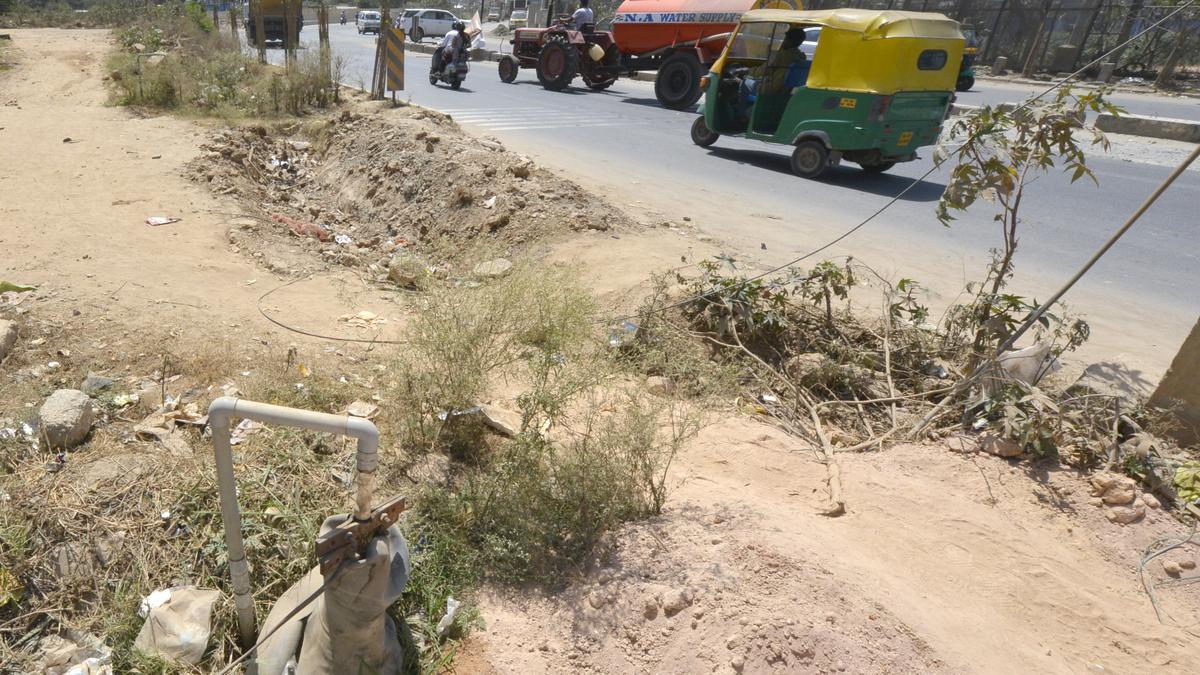
BWSSB to tap into groundwater resources in Bengaluru
The Hindu
BWSSB tackles Bengaluru water crisis by filling drying lakes with treated water, increasing groundwater levels and supply.
Amidst the ongoing water crisis in Bengaluru, the Bangalore Water Supply and Sewage Board (BWSSB) has decided to tap into the city’s groundwater resources by filling the drying lakes with 1,300 MLD of treated water. This initiative has been taken up in association with Indian Institute of Science (IISc).
“We have 1,300 MLD of treated water available with us. If we use it to fill tanks, which have dried up, then it will get rejuvenated in 10–15 days and the groundwater level will increase in the nearby areas. We will also install filter borewells on these lakebeds,” said Ram Prasath Manohar, Chairman, BWSSB.
He added that water from these borewells will be treated and scientifically tested by IISc scientists and then will be supplied for non-consumption purposes. He said that this will add around 20–30 MLD of water into the system. In a similar initiative, the Irrigation Department is supplying water in Devanahalli by treating the water in Kote lake.
In Bengaluru, BWSSB has chosen Jakkur lake, Attur lake, Nayandahalli lake, Chikkabanavara lake, Varthur lake and Agaram lake for this project.
BWSSB has also started supplying treated water for non-domestic purposes to those who are in need. “Those who need it can book it on our application,” Mr. Manohar said.
Speaking at a press conference on Saturday, Mr. Manohar said that there was plenty of drinking water available in Bengaluru. “Bengaluru needs 2,100 MLD of water for drinking, out of which 1,450 MLD comes from Cauvery. There is sufficient water in the reservoirs which will last us till July. We need 8 TMC, but there is 34 TMC water in reservoirs. There is no need for Bengalureans to worry,” he said.
He acknowledged that the remaining 650 MLD comes from borewell water and there is a 250 MLD deficit there due to exploitation of groundwater and lack of rain. “Where borewells are depleted, people are depending on Cauvery water and this is causing a stress on the system,” he told The Hindu.













